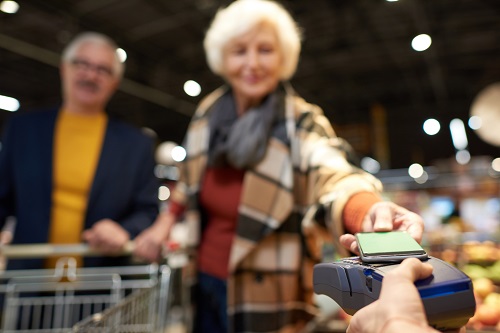The COVID-19 pandemic has increased society’s reliance on digital platforms – everything from meeting others via Zoom to shopping for groceries online.
The crisis has also accelerated the use of digital payments, with many retailers not accepting cash as it is considered a health risk versus using contactless methods. Consumers are not only using contactless debit and credit cards but graduating to using payment apps via mobile phones and other smart devices.
Of course, the migration to digital payments was well underway before the pandemic:
- In China, cashless transactions account for about 66% of total transactions via-e-wallet suppliers such as WeChat pay and Alipay, amongst others. [1]
- Southeast Asia has at least 150 e-wallet license holders, providing money transfer and payment services to the region’s smartphone-wielding population.
- In EMEA, the Nordics have embraced a cashless society. In Sweden, for example, Swish is the leading e-wallet supplier in the home market with more than two thirds of Swedes using it to make payments to friends and businesses.
- In its UK Payment Markets report, UK Finance analyzed local payment habits for 2019 and found that card payments accounted for over half of all payments, while cash had declined by 15%. [2]
- In the U.S., major mobile and web payment apps, including e-wallets such as Apple Pay, PayPal, and Venmo, have adoption rates of less than 10%, but that number is growing.
More Cashless Options for Seniors
The elderly are often the most reluctant to adopt new technologies, and cashless payments are no exception. Ironically, older people may have the most to benefit from a cashless society, which requires less movement, less travel, and fewer personal safety risks. But the usual reluctance to adopt may be overcome by necessity. The pandemic has brought lockdown protocols and an accelerated shift to digital in response, creating new challenges for many seniors. To meet the growing need, e-wallet and other digital services for the elderly have been launched around the globe.
Some notable examples:
- In the Philippines, the City of Manila has disbursed financial assistance to its senior citizens, allowing them to receive their benefits from the safety of their own homes using the PayMaya app. The funds deposited in their PayMaya accounts can be used to pay bills, purchase groceries online, or send money to other users.
- Some e-wallet suppliers offer a utility bill payment service, which means the elderly user has the power to pay with just a click. They also allow the user to make money transfers. Children who do not live near their parents can make these transfers from remote locations.
- Starling Bank, a mobile-only bank in the U.K., has introduced a “connected card” to help self-isolating customers procure essential items during the crisis, without the need to handle cash. Connected cards are transferable debit cards linked to customers’ existing accounts.
- In China, WeChat Pay has added a new feature that lets users issue virtual cards to elderly relatives. The new feature allows elderly individuals with WeChat accounts to conduct electronic payments, even if they previously had not activated the platform’s payment function. Many senior citizens do not have a bank card, which is a prerequisite for using WeChat Pay.
- In Southeast Asia, e-wallet suppliers have partnered with suppliers such as 7-Eleven, Puregold, Lazarda, and Mercury Drugstores to allow the elderly to purchase groceries, medicines, or order food from restaurants and food kiosks.
See also: The Price of Safety: Social Isolation, Eldercare, and Opportunity for Insurers
Digital Payments in Insurance
For insurers, digital payments offer a way to speed the customer journey and make insurance more accessible, particularly for seniors with limited mobility. As a result, many e-wallet suppliers are partnering with insurers and insurtechs to offer new types of protection products:
- In Singapore, Singlife released a savings account that includes a free life insurance plan. The account is also accompanied by a Visa debit card, allowing account holders to access their money at any time.
- Gcash has teamed up with Singlife Philippines to provide users with relevant affordable and secure insurance products.
- In India, mobile wallet supplier Paytm now has a license to sell life and health insurance plans. Paytm has a big advantage as more than 16 million offline merchants are now accepting payments via the Paytm app.
- In Malaysia, U Mobile’s soon-to-be launched e-wallet service GoPayz will allow users to receive quotes, purchase, and manage their insurance policies through the GoPayz app and website.
See also: COVID-19 Brief: Three product digitalization trends in Asia insurers should watch
Partnering with an e-wallet supplier offers clear advantages for insurers. When a customer already uses a mobile wallet to pay for essential services, the offering of insurance products becomes much easier. In addition, e-wallets have the ability to automate the payment of premiums and claims.
As elderly populations become more aware of and comfortable with digital payments, the opportunity for insurers to better meet their needs could grow significantly. E-wallets, mobile-only banking solutions, and other digital tools can facilitate engagement across the insurance value chain and help seniors overcome obstacles preventing them from acquiring the coverage they need.



